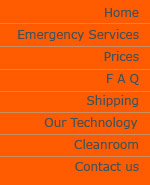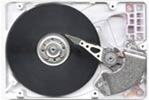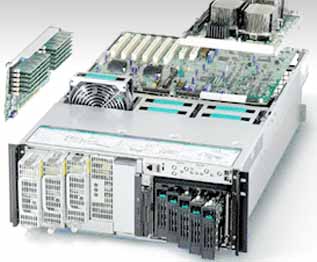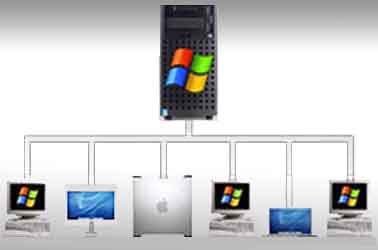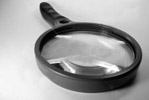Business Continuity & Disaster Recovery
New risks. New imperatives. A new approach.
Business continuity is vital to business success. It can no longer remain the concern of the IT department alone. How do you determine the continuity and recovery requirements of your business? How do you identify and integrate critical business and IT priorities into a comprehensive continuity program? Where do you start?
UniRecovery's business continuity strategy includes:
- Identification of the business units and operational objectives.
- Identify & inventory and rank assets based on criticality to the business objectives.
- Rank the threats that pose risks to the critical assets.
- Identify the severity of vulnerabilities in the critical assets.
- Prioritize risks by focusing on assets affected by credible threats and existing vulnerabilities.
- Develop strategies that minimize risk and maximize ROI.
UniRecovery works with you in creating plans and providing cost estimates to adapt your facility and technology resources for continuous availability:
- Backup and recovery options for your multi-vendor information technology.
- Compare internal and external disaster recovery site options.
- Asses and improve the recoverability of your critical infrastructure.
- Asses and improve the protection and security measures of your critical business processes.
For More Information...
Please contact us for more information on 08000 439 549
As technology becomes more and more important to even the smallest business, one key issue is often left on the sidelines:disaster recovery. How will your business survive a fire in its main data centre, or the theft of its servers? It is not just catastrophic failures that can require data recovery - a software patch or a new application could fail, corrupting data or shutting down critical services. Too many businesses forget about disaster recovery, even when their survival is at stake. A recent survey from Veritas, a storage software company, shows that 97% of organisations in Britain would not be able to carry on as normal after a data centre fire. Nearly 40% had no idea how long it would take to get back to normal operations. While a fire might be a nightmare scenario, it is not the only way a business can lose some or all of its information services. Even the simplest outage can cost significant sums, with customers lost due to slow responses as staff struggle with paper-based back-up systems. With IT at the heart of many business processes, data loss can really affect how a company survives a disaster. Operational and financial data are the lifeblood of business, but research shows that 43% of businesses without a business continuity plan will never re-open after a major outage, while 80% will fail within 13 months. The numbers are frightening, but planning is more a matter of common sense than of expensive technical solutions. It is important to make sure regular back-ups are taken, and that these are held in a secure, off-site location. Companies specialise in offering these services, but it is often just as easy for small businesses to hold back-up media inside a fireproof safe at the home of an IT manager or director.
It is important to remember that back-ups should not just be data: they must also include the configuration information used to customise and deploy applications. There is little point in being able to recover business information if the workflow it is part of has been lost. Whatever the solution you put in place - an off-site office or just taking your back-ups home every night - you need to make sure it works. This means testing your disaster recovery procedures. If you are rebuilding servers after a burst water pipe in the server room, you do not want to find out the back-up scripts have been failing every night for two years. You must make sure you can recover data from back-ups by regularly attempting to restore data, and by monitoring the back-up process. Disaster recovery is high on the industry agenda, and many products and tools have been released to help organisations cope with ever-increasing information needs. Tape-based solutions are always popular, with companies such as Certance, a spin-off from Seagate, launching a range of LTO-3 drives that can store up to 800GB on one cartridge. Tape is a cheap and effective means of storing large amounts of data, but its serial nature can result in slow restorations. Iomega is hoping for a revival in its fortunes with its Rev controller-less hard disks, and has recently announced an autoloader that can handle 10 35GB disks. While Iomega's Rev disks don't hold as much data as a single FireWire (IEEE 1394) drive, they are considerably smaller and cheaper, as they don't have a controller. Also, tape autoloaders often require one slot to be left free for a cleaning cartridge. As Iomega's solution doesn't need regular cleaning, all 10 slots are free, so you can use them to hold drives used for daily and weekly back-ups, regularly taking disks off site. FireWire disks make disk-to-disk back-up simple, and hard drive manufacturers such as Maxtor and Seagate have seized the marketing opportunity, selling FireWire drives with single-button back-up solutions that include back-up software. Maxtor's OneTouch drives are bundled with Dantz Retrospect to help manage back-ups and restoring. Retrospect, a simple Windows tool, makes it easy to select the files and directories that need to be backed up. A system administrator just needs to bring in a FireWire drive, plug it into a PC or server, press a button to run the back-up process, then unplug the drive and take it to a secure off-site location. With up to 300GB in a book-sized drive, small businesses can take regular back-ups for a relatively small outlay - typically less than £300 for the complete package of FireWire disk and software. A new arrival on the small business scene is a simple network-attached storage server from Linksys that uses USB 2.0 and FireWire connections to link your commodity drives to a network. This turns standard removable drives into a network resource, allowing data to be stored centrally and quickly duplicated for off-site storage. And some manufacturers are going further, bringing out NAS solutions with hot-swappable drives in Raid arrays. These allow you to unplug data and take it home, without affecting the business. While it is getting easier to back up or duplicate large amounts of data, recovering systems is getting harder. Not only do you have to rebuild servers after a major outage, you need to make sure they are patched, and that your data has been recovered securely. Hardware virtualisation, using tools such as VMware or Microsoft's Virtual Server 2005 mean that any commodity hardware can be used to host virtual machines that run your business services. As well as backing up data, you can back up complete machine images, which can quickly be restored and reloaded on to new hardware: all you need is a copy of the base operating system and a suitable box. Unlike conventional whole-machine backups, virtual machine images don't need to be run on identical hardware. Simple back-up solutions can mean a quick return to business even if you have lost your entire premises. With data recovery taking days on average, the quicker you get back online the better. Large enterprises can also recover, if they are willing to invest the sums needed. Multiple replicated data centres and offsite disaster recovery sites should mean that services can be restored quickly, if not instantaneously. However, the key lesson is that no matter how well written the procedures, or how well engineered the solution, it must be tested regularly to make sure it works.
By Simon Bisson |
|
Untitled Document
| Our Guarantees : |
Our Cleanroom Class 10: |
- NO-FIX, NO-FEE data recovery Service:
Simply No Data-No Money
- Fixed Rates on all recovery services, irrespective of the cost & time it takes to recover.
-
capability to recover data from loss caused by power surges, Unable to boot, Invalid media, BIOS errors, Partition corruption, Virus attacks, Data corrupted, Hard drive failure, faulty pcb, Firmware damage repair, Hard disk crash, Accidental deletion, software or system malfunction, lightening, fires, floods, sabotage, user errors, accidental format, deletion, repartitioning.
-
Door-to-Door collection & delivery all included in our fixed rates.
-
Emergency Recovery Services: in order to get you back up and running with the shortest possible delay.
-
- A specialist team of RAID server with qualified data recovery engineers specialized in variety of systems including , Apple MAC, Linux & Unix and Windows.
-
To maintain the highest standard of work environment with the use of Clean rooms within all our laboratories, in which air quality complies with the applicable standards BS 5295, ISO 14644-4 and Federal Standard 209.
-
Extensive experience and expertise in recovering data from ‘inaccessible’ hard drives.
-
Data recovery from SCSI HDD, RAID, SAN or NAS servers, Mirrored and Striped Volume, Exchange Servers, Backup Tapes, floppy diskettes, Zip, Optical Media. in addition to .gdb, .ib, .fdb, .fpt & Oracle DataBase along withemail files such as .edb, .stm, .mbx, .dbx, Outlook .pst, .ost file extensions.
-
Complete discretion with regards to client data protection, 100% Confidentiality Assured.
-
Free post-recovery customer services: providing you with measures to prevent similar losses in the future in cluding consultations on data security issues and backups.
-
A specialist team of forensic data recovery experts for litigation cases & professional data deletion.
|
Our advanced laboratories are equipped with Clean Rooms rated as ‘Class 1000, 100 & 10 ’ where there exists no more than 1000 particles; and ‘Class 100’ where there exists no more than 100 particles whereas with "Class 10", less than 10 particles of 0,5 µm found in our Cabim-Flow which is of "Class 10".
The air quality of the Clean Rooms complies with the applicable standards BS 5295, ISO 14644-4 and Federal Standard 209. Hard disk fabrication requires a ‘Class 100’ Clean Room and UniRecovery undertake all laptop hard drive recovery work with brands whether external drives such as Lacie, Freecom, or Omega or internal such as Maxtor, Seagate, Western Digital, Hitachi, Samsung, Compaq, HP, Fujitsu, Quantum and IBM in Clean Rooms ‘Class 10’. Commonly established, recovery from “Clicking” hard disk drives, can also be achieved under these specialised Clean Room conditions.
|
|
|
| © copyright UniRecovery |
|






